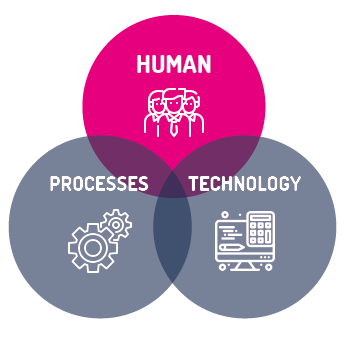You have never been involved in a failed project? Then you belong to a lucky minority of professionals who have been spared a lot of professional stress and personal disappointment. Because in Austria and Germany, 73% of all major projects fail. Depending on the definition, failure can mean massive cost and schedule overruns, poor project results as well as complete project abandonment. This Capture blog post addresses the following questions and shows how to reduce project failure:
- Why do projects fail regularly?
- How can you avoid project failure?
- When is the right time to implement a PPM solution?
Increase in project work does not affect better project results
Studies of project implementation over the last 20 years show that the rate of failed projects remains relatively constant in the high range. Depending on the sector and the size of the project, only every second to sixth project fulfills the original project expectations. 21% of project budgets fizzle out without concrete results. At the same time, the share of project work in companies has risen massively to 60% in the same period. So how is it that project management practice has not experienced a gradual increase in performance, but instead continues to struggle with well-known reasons for project failures?
Project management challenge number 1: The human factor
The list of potential project management challenges can be long and includes processes, technologies, and human capital. However, the best use of technology and the specification of optimal process structures will not help if the project team and relevant stakeholders do not fully buy into the intended project management culture.

Icons from icons8.de
Common stumbling blocks in project management organizations concern, for example:
- Conflicts of interest with regard to budget allocations or project priorities
- Ineffective communication despite fixed coordination dates, steering committees, and reports
- Weakening discipline in administratively necessary project management tasks
- Staff turnover and the associated "ups and downs" in established project management processes
If you want to reduce project failure in the future, then you should reflect psychologically on all new project management measures!
The following five practical tips will show you what this can look like:
1. Encourage the courage to "fail"
Successful project management requires the right mindset and the courage to take consistent action. This also includes recognizing project problems and addressing them immediately with appropriate measures. In order to reduce project failure, it may also be necessary to terminate the project at an early stage. Very few people dare to take this step - with the consequence of long-delayed project problems and the result of a costly, nerve-racking project failure. Therefore, promote a positive error culture. Because "mistakes" are part of the game. What matters is how you deal with them!
2. Give strategic planning room for maneuver
Ideally, the Project Management Office ensures that strategic objectives are met in operational project management. In practice, however, we often observe that the responsibilities of the PMO are limited to organizational activities without a strategic vision and relevant decision-making powers. Where the PMO could take on a real leadership role, it is again evident that organizational project management hardly allows time for strategic tasks. Create the right framework conditions for holistic project management. Allow scope for responsibility and plan fixed time resources for strategic tasks away from the day-to-day business.
3. Identify digital-savvy project managers
The use of a professional PPM solution also helps to reduce project failures. But the successful digitalization of project management processes stands and falls with the acceptance of the project staff. They often just need a role model who pushes the right software use. When appointing project managers, therefore, make sure they have a digital affinity.
4. Optimize data maintenance for the use of technology
When implementing PPM software, it is important to set the right priorities. Easier said than done. Because the feature spectrum ranges from time recording tools to sophisticated business intelligence integrations for the optimal use of resources. In order for you to benefit fully from the functionalities, a continuously maintained database is necessary. This can only be achieved through the strict adherence to documentation obligations of all project staff. But here lies the crux: a high data maintenance effort has a demotivating effect on the entire project work. It is better to define a few central KPIs and derive the minimum requirements for data maintenance from them.
5. Plan resources for all project phases
The Pareto principle states that 80% of the results are achieved with 20% of the project effort and 20% of the project result, in turn, requires 80% of the work effort. Unfortunately, the 80-20 principle is often practiced incorrectly in project management. In many project management organizations, requirements management, quality assurance and ongoing project communication are regularly neglected. If you want to reduce project failure, make sure in your project and resource planning that these project phases are duly considered. They are labor-intensive and "only" a foundation for concrete project results - but without a strong foundation, project successes do not emerge.
With digitalization to holistic project management
The combination of lean project management processes, user-friendly technology, and project teams with the right mindset are the guarantee for outstanding project management performance. However, holistic project management does not come about in a linear way. To be successful as a project management office, you have to turn many screws.
The introduction of a project portfolio management solution supports you in professionalizing your project management organization. Digitalization enables the automation of repetitive work processes, data-based decisions, and more freedom for value-adding activities. It is important to maintain this focus even in a difficult transformation phase. Always reflect on your digitization measures from the employee perspective. This is the surest way to reduce project failure.
Capture SmartStart: Tailor-made PPM
Are you ready to take your PMO to the next level?
We would be happy to advise you.